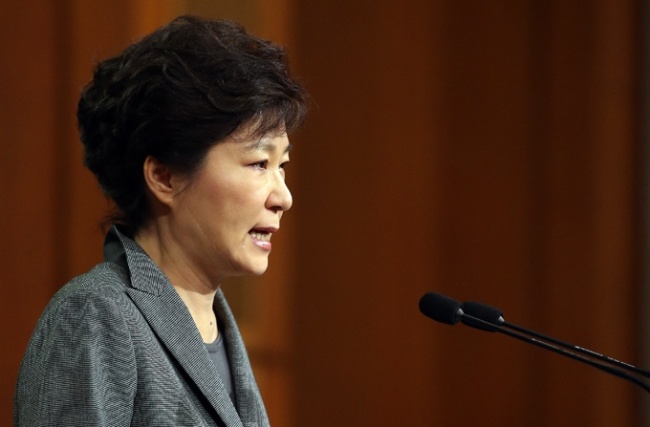Controversy is likely to deepen over Cheong Wa Dae’s personnel screening process, as the nation’s top office admitted that it had not known that a senior aide was being investigated for alleged misconduct for the last three months.
The presidential office said it first learned on Friday that Song Kwang-yong, former senior presidential secretary for education and culture affairs, had been under police investigation.
“On Sept. 19, the office of presidential secretary for civil affairs became aware that Song had been under police investigation on suspicions of violating the Higher Education Act, and that the case would be sent to the prosecution with a request to press charges,” Cheong Wa Dae said in a statement released on late Tuesday evening.
The office asked Song to verify the information on the next day. Song admitted that he was under investigation and offered to quit, saying that it was “inappropriate to remain in the job while being investigated.”
The announcement came four days after Song suddenly tendered his resignation Saturday. His abrupt departure raised eyebrows, as he did not give any specific reason for his departure, and President Park Geun-hye immediately accepted his resignation on the same day she embarked on a weeklong overseas trip to North America.
Cheong Wa Dae spokesman then gave reporters an evasive answer that Song wanted to resume his teaching, which was later found to be untrue.
The case is expected to rekindle criticism over President Park’s personnel vetting process, which has been under fire for a series of failed nominations for Cabinet and other high-ranking posts.

(Yonhap)
Park’s office has been criticized for sticking to a limited pool of candidates, a lack of recommendations outside of the presidential inner circle and insufficient screening of candidates for top positions.
Contrary to Cheong Wa Dae’s pledge to revamp its vetting process, the office seems to have failed to verify Song’s suitability.
Song was named to the post only three days after he was interrogated by the police on June 9.
But Cheong Wa Dae blamed the police for its late reports.
“Song was questioned by the police on June 9 but the investigator in charge of the case did not report it (to the agency’s database) on that day,” the office said, adding that it was informed by the police the next day that Song had no criminal or interrogation records.
The top office also claimed that Song lied about being investigated by the police on the statement he submitted to the office before he was named to the post.
But it remains unclear how Cheong Wa Dae, the nation’s most powerful public office, was unaware of Song’s case and why the police didn’t report the case during the last three months.
Song had been investigated by Seocho Police Station over allegations that he ran an overseas study program without gaining permission from the government. The overseas programs have been facing a barrage of criticism from students and parents as Korean universities received a commission of 20-40 percent on tuition fees of students who enrolled in the programs.
The police said Song was one of the former and incumbent heads of 17 public and private universities involved in the programs. Song was president of Seoul National University of Education before he took the presidential secretary post in June.
By Cho Chung-un (christory@heraldcorp.com)





![[Weekender] How DDP emerged as an icon of Seoul](http://res.heraldm.com/phpwas/restmb_idxmake.php?idx=645&simg=/content/image/2024/04/25/20240425050915_0.jpg&u=)
